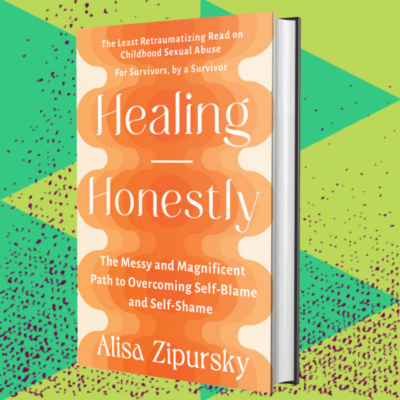This story describes and gives personal examples of hypervigilance and catastrophic thinking and including fears I have about my harm-doer returning.
Part 1 (Part 2 will be coming in the next couple weeks)
I’ve wanted to tell you all about my hypervigilance for awhile now but I haven’t known where to start. Then today, Franklin (see below) bit at my pants to try to prevent me from putting them on because it meant that I would inevitably put on shoes, go outside and never return again. When I try to give him a treat, he sticks his butt out, creating as much distance as he can while grabbing it, and then runs away as though it’s too good to be true. Franklin thinks everything is a trap.
You see, in the words of Kid Fury, you don’t have to get ready if you stay ready. Of course Kid Fury was talking about always being prepared for a surprise Beyonce album or tour, but when I say it, it’s a manifestation of my complex post-traumatic stress disorder. And, like my love of snuggling and popcorn, I’ve also unintentionally passed down this mantra of hypervigilance and catastrophic thinking to my dog.
What is hypervigilance and catastrophic thinking?
Hypervigilance is a state of extreme alertness, where you are always on the lookout for hidden dangers, both real and presumed. People who are hypervigilant can be constantly on-guard and can maintain an intense, sometimes obsessive, awareness of potential threats. It’s a super common part of having PTSD, but can also be seen in other mental health conditions. Hypervigilance can come from experiencing the trauma of systemic oppression, such as the trauma of racism, homophobia and transphobia. It often goes hand-in-hand with catastrophic thinking which is the rumination about worst-case outcomes.
Hypervigilance and catastrophic thinking are completely normal responses to enduring years of trauma and, at their core, stem from our instincts to keep ourselves safe and survive. We had to develop these skills deep within ourselves to stay safe and to prevent further harm.
Are hypervigilant and catastrophic thoughts irrational?
Sometimes I resent when therapists and clinicians describe hypervigilance and catastrophic thoughts as irrational. I mean, I get it. When my heart fills with love for Charlie and then I feel an urgency to beg him please not to die anytime soon (I ask this of him very, very often), or I see an unknown phone number call me and I go into fight/flight/freeze mode because I think it’s my father trying to reach me, these things could be seen as irrational. I get why my therapist would say that it is irrational that I associate the joy of my love for Charlie with bracing for the worst (and statistically unlikely) outcome, and why it is not rational to automatically assume the phone number is from my father, when, to my knowledge, he hasn’t called me in 7+ years.
But the thing is, I have very good, very rational reasons for my catastrophic reactions.
The model relationship of my life which taught me what true love is, my mom and my stepfather, ended tragically 10 years ago when my stepfather died. I know intimately what it looks like to care for the love of your life while they are dying. It was the worst possible outcome and was the catalyst for my first diagnosis of PTSD and the resurfacing of my childhood sexual trauma. And Charlie is a mixed-race black man living in America, which can be extraordinarily dangerous for him. Sometimes I hold my breath when he takes out the trash late at night and I fear someone will think he’s breaking into our building and call the cops on him. It is the worst possible scenario, but this is America, it happens literally all the time.
When my phone rings and I fear it’s my father it’s because he has tried over the years to find new, sneaky and sinister ways to reach me. Like one year he donated to a charity in my name for my birthday, knowing that the letter would have the return address of the charity so I’d be tricked into opening the note. Happy fucking birthday to me.
Is bracing for the worst irrational? I think my hypervigilance and catastrophic thinking come from fact that over the past 30 years I’ve learned to be afraid. The world taught me I should be afraid, that bad dangerous shit happens all the time, and the times when I’m in a really good place and more bad shit happens, one of the first thoughts I have is, “Damnit, I should’ve seen this coming.” As though anticipating the hurt would would actually lessen the pain.
The toll hypervigilance and catastrophic thinking can take on us
Dude. Being on high-alert all the time is insanely exhausting. It is exhausting in every sense: our brains are so tired from working on overdrive to constantly look for potential threats and our bodies are so exhausted from all of the hormones our sympathetic nervous system pump through us so that we can respond to harm at any time.
Our brains can become so occupied scanning for potential threats that it can take up all the bandwidth we have for our thoughts, making it hard to be present in a moment or to think about anything else.
Not only is it super exhausting, but it can really inhibit our abilities to feel the joy of the good things in our lives. It can make us distrustful of the good things that happen in our lives, because we are always waiting for the other shoe to drop.
Sometimes I think this gets distorted and I’ve heard other people say things like, “Well, maybe you don’t think you deserve good things in your life.” Like some The Secret shit (I never read it, I just irresponsibly imagine aloud that’s what it’s about). But that’s not the case. I super duper think I deserve the good shit in my life, I just am not persuaded that it’s real or happening and I am afraid of the pain that comes next.
Learning to push back against the black and white thinking
Lately, I’ve been working (and boy is it work) on trying to push back against the black and white thinking that can occupy my mind. From years of sustained trauma, my brain has been conditioned to see things as either good or bad, safe or unsafe, everything is okay or my world is crumbling.
Acknowledging and thanking the survival strategies that got us here
The first step for me has been to acknowledge that my black and white way perspective comes from a rational and logical place of experiencing years of not feeling safe.
I’ve been experimenting with thanking myself and my own brain for working so hard these 30 years to keep me safe. Those survival mechanisms worked, because this bitch survived.
Releasing the survival strategies that no longer serve our needs
I am able to thank these mechanisms and acknowledge that they are no longer in service of my needs, but the hard part that has required so much work is experimenting with how to do the the “releasing” part.
It is much more helpful for me to not invalidate my fears and thoughts, but instead actually shed a light on them and go through the intellectual exercise of saying okay if that thing did happen, then what would I do? Would it be excruciating and terrible? Yes. Would I still survive? Yes. Seeing that terrible things can happen but that I would still survive is helping me to break the black and white thinking and see that I live in shades of gray.
I’ve been experimenting with a “yes, and” approach to my catastrophic thoughts (I know “yes, and” is the basis of improv but I promise you it isn’t about that and I’ll never ask you to attend my non-existent improv shows). I have a catastrophic thought like, “My dad is going to find a way to show up somewhere I am and harm me.” Instead of telling myself that thought is irrational or not going to happen, I say to myself, “Yes, and if that did happen I would implement my safety plan that I have and it would be fucking awful but I would know what to do and I know that it will not kill me and I will survive it like I have in the past.”
Asking for help from people in our lives
I have found it helpful to train the people in my life to help me identify when my hypervigilance and catastrophic thinking come into play. Sometimes I can pick up on it myself, and sometimes it’s really helpful that people like Charlie identify that’s what’s going on. It is important that he is never judgmental of those thoughts, or calls them crazy or irrational, but gently offers that maybe that’s what’s happening with me. I encourage others to experiment with these supportive strategies, such as offering to talk about worst case scenarios to help us form a “survival” plan.
I’m in a time in my life where I’m so tired of fighting the ways that trauma has changed my brain. It feels like a relief to try to accept that this is a part of my life, that the voices bracing for catastrophe that keep me on high alert are a part of me, but not all of me. I’m working to let those voices exist, I just don’t want them to be the only voices up there, and hopefully they stop being so damn loud. In the upcoming weeks I’m writing a second part to this piece about catastrophic thinking while trying to plan for my future (spoiler alert: I’m getting married in a few weeks) so keep an eye out for it! Until then, brace yourselves. Just kidding. Less bracing, please.

